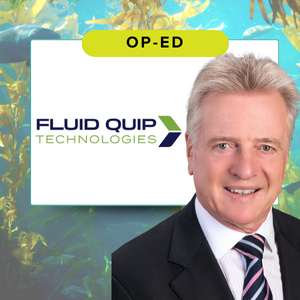Interview: Optimising and Scaling Alternative Feed

Read insights from Fluid Quip Technologies' Senior Nutritionist, Peter Williams on key approaches towards scaling alternative feed production and redefining consumer perception.
With extensive experience in animal nutrition in both academia and commerce, Peter is past president of the British Society of Animal Science and Emeritus Professor at the University of Nottingham Trent, ex R&D Director of an international feed additive nutrition-company and senior project lead in an international crop science company. Currently Senior Nutritionist with Green Plains at Fluid Quip, he is leading R&D projects focusing on alternative sustainable proteins for feed.
In what ways is your approach helping to redefine market expectations and move these alternative ingredients from experimental to essential? The expectations of the feed industry with respect to new products are simple. They expect commercial volumes of product (>100ktons per annum), consistency of product to avoid having to reformulate diets, resilience and redundancy in the supply chain and compliance with regulatory demands. Production of corn fermented protein in the USA has fully achieved these requirements. FQT is in the process of establishing the same supplier base in Europe.
What role do strategic partnerships play in overcoming challenges related to cost, consistency, and regulatory approval? The key strategic partnerships required to establish a commercial supply of corn/wheat fermented protein for the feed industry are alignment and long term confidence in the renewable fuels industry. Corn fermented protein is a plant protein product that is ideal for animal/aquaculture feed and it is produced in the co-production of renewable low carbon fuel. Regulatory approval is not an issue since existing co-products from the production process are already approved. Technologist involved in the production of renewable fuels are well versed in producing highly consistent product in commercially viable production quantities.
What are the key hurdles you've encountered in scaling production, and how are you addressing these challenges? Scaling production is not an issue since when plants are commissioned within days production levels are achieved >100 tons/day. The challenge is to build market acceptability for the product as soon as it is produced in these commercial quantities. Hence the very extensive trials portfolio that we have built (over 50 trials with supporting publications in all target species) to provide confidence to our customers to invest in the product.
)
)
)
)
)
)